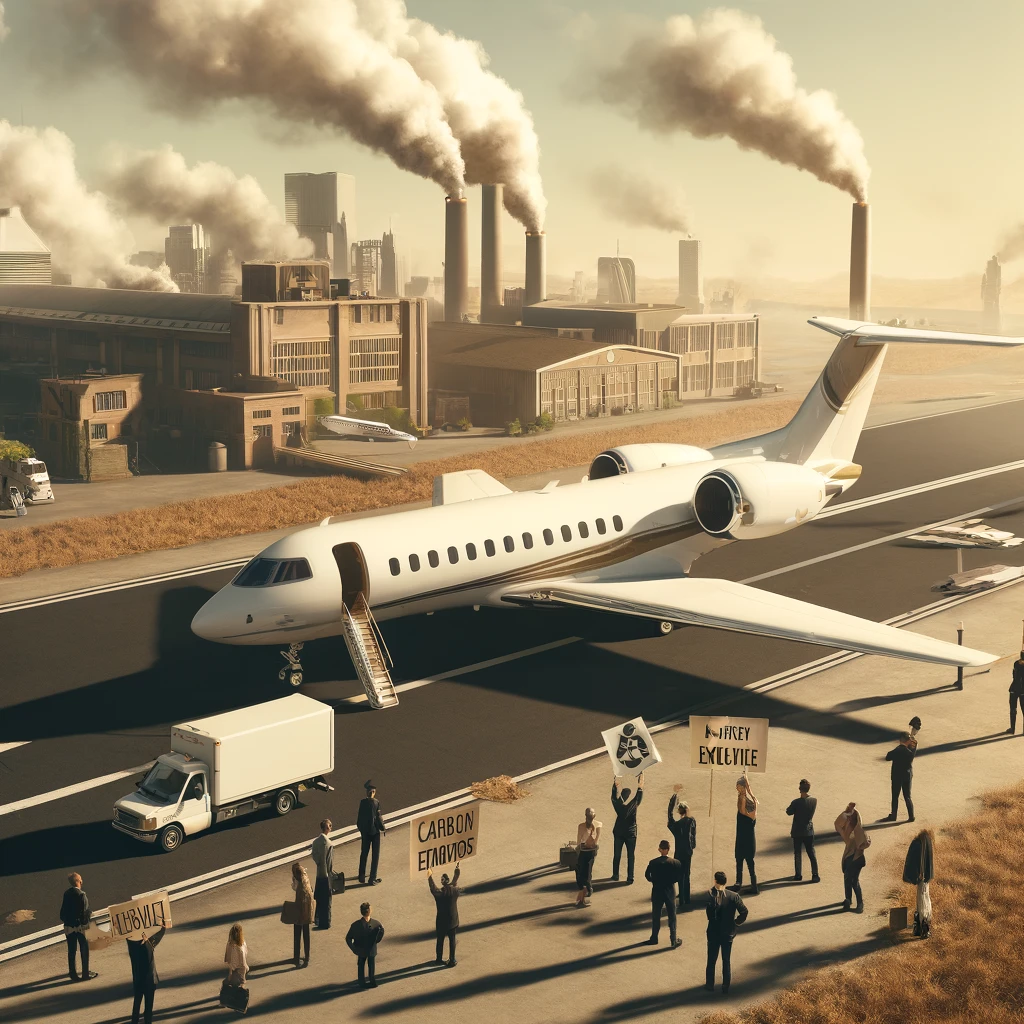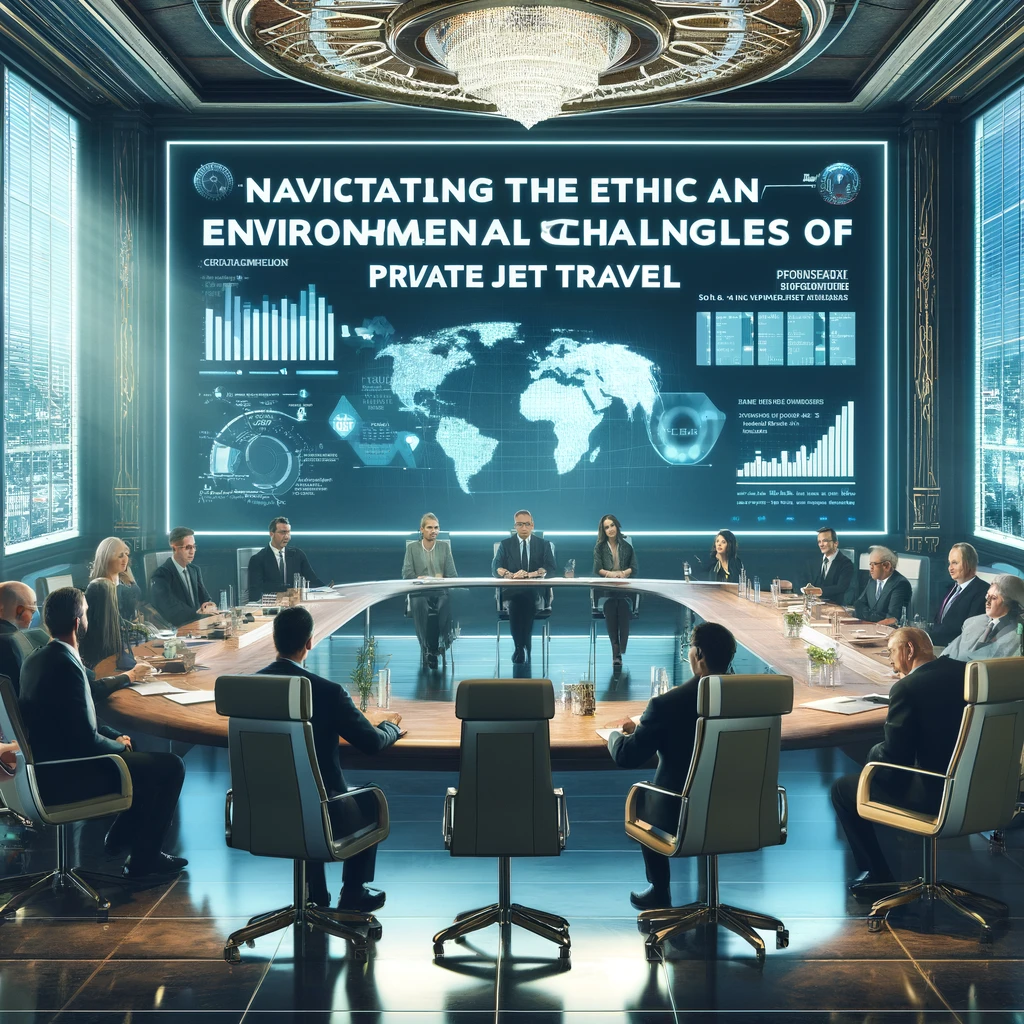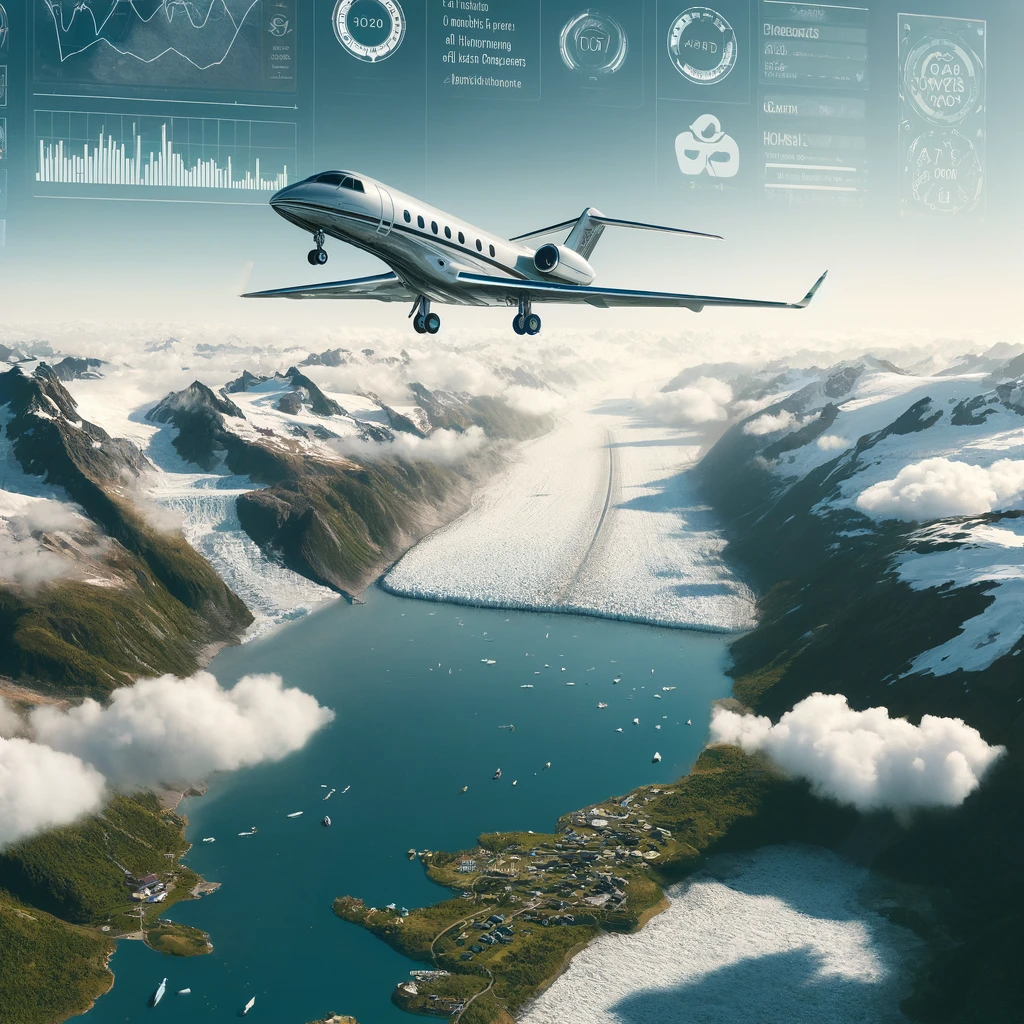the Ethical and Environmental Challenges of Private Jet Travel
The Dichotomy of Private Jet: Convenience vs. Responsibility
Private jet travel symbolizes the pinnacle of luxury and efficiency in today’s transportation landscape. It’s favored by business magnates and the wealthy for its rapid and plush services, sidestepping the inconveniences of commercial airline travel. However, as the societal and ecological ramifications of private jets garner more attention, we’re compelled to ask: What is the real cost of this convenience?

Stephen Prince: Luxury Air Travel and its Shifting Perspectives

Stephen Prince, a celebrated entrepreneur in the gift card sector and a resident of St. Simons Island, Georgia, personifies the private jet-setter lifestyle. His frequent trips to a pheasant hunting preserve in Nebraska are made effortless by private flights, reducing what would be a lengthy commercial journey to a quick three-hour escape, replete with high-end services. Yet, Prince’s views on private flying are evolving due to his involvement with Patriotic Millionaires, an organization that pushes for higher taxes on the affluent.
The Hefty Price of Private Aviation
The allure of private jets is undeniable, but they pose significant ethical questions. Research by Patriotic Millionaires and the Institute for Policy Studies unveils a glaring disparity: private jet users pay little towards aviation infrastructure upkeep, especially when compared to commercial travelers. Additionally, the environmental toll is considerable, with private jets emitting far more carbon per passenger than commercial planes.
Proposed Measures to Tackle Private Jet Impact
To address these concerns, various regulatory and tax reforms are being considered. These include heightened fuel taxes on private jets and extra charges on short flights, which are major contributors to carbon emissions. Such initiatives aim to alleviate the adverse effects associated with private jet travel.
The Ongoing Debate on Aviation’s Role
The National Business Aviation Association champions private jets as essential for connecting remote regions and enhancing business productivity nationwide. They argue that commercial aviation should bear most infrastructure costs. Opponents like Prince, however, argue that this system unjustly offloads financial burdens onto regular taxpayers and heightens environmental degradation.
A Call for Increased Responsibility
With private jet travel on the rise, driven by tax breaks and the unmatched convenience it offers the ultra-rich, a reevaluation of taxation and regulation of these benefits is overdue. As discussions intensify about private aviation’s role in societal and environmental matters, it’s evident that more balanced policies are needed.
Striving for a Sustainable Aviation Future

Amid global climate initiatives and public scrutiny, the private jet sector is under pressure to minimize its carbon footprint and adopt sustainable practices. Achieving the industry’s goal of net-zero emissions by 2050 will necessitate major advancements in fuel technologies and operational strategies.
Conclusion: The Future of Luxury Air Travel
While private jet travel remains a symbol of ultimate luxury, it is increasingly important for the industry to align with global sustainability objectives and equitable economic practices. Engaging in constructive discussions and implementing substantial reforms are crucial to harmonizing the privileges of private jets with global environmental and societal needs.
